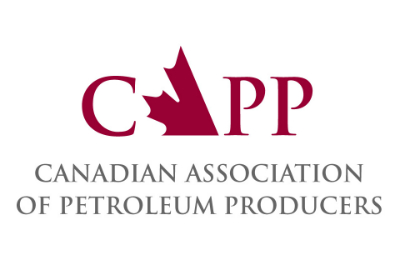Energy
Canadian Association of Petroleum Producers Releases Seven-Point Plan to Unleash Canada’s Energy Potential

From CAPP – The Canadian Association of Petroleum Producers
Canada’s economy is at a crossroads. Despite nearly a decade of ideological policy that has stifled growth in our sector, the energy industry stands ready to play a foundational role in driving new investments, creating and supporting high paying jobs, and providing a stable supply of affordable energy to Canadians and countries around the world.
With the right policy and investment environment, the oil and gas industry can help solve the country’s productivity and competitiveness challenges while enhancing its geopolitical influence with its trading partners—including the United States. The globe is becoming more unpredictable with continuously shifting trading patterns, making it essential for federal leaders to send the clear signal that Canada is ready to invite investment into our resource sector and grow our role as a secure supplier of energy to the world.
To that end, CAPP’s Energy Platform outlines seven steps the next government of Canada should take to unleash our energy advantage. Those include:
- Clear the roadblocks to building the infrastructure we need to connect Canadian energy to the world.
- Immediately streamline approvals for major projects already in the federal review process.
- Continue advancing emissions reduction technologies to enhance our environmental leadership while keeping energy affordable and competitive.
- Champion oil and natural gas as a critical part of Canada’s economic future.
- Don’t just build—build with speed.
- Use our abundance of natural resources to strengthen our energy security.
- Tariff-proof our economy by growing and diversifying market access for Canadian oil and gas.
You can download the full 2025 Energy Policy Platform at www.capp.ca/en/unleashing-canadas-energy-potential/.
Quotes from Lisa Baiton, CAPP President & CEO
“The global landscape is shifting rapidly. In recent weeks, it’s become clear our relationship with America has fundamentally changed—and we must act with urgency. Our focus should be on building a tariff-proof economy, not just for oil and natural gas, but for all Canadian products. This means building more pipelines, transportation corridors, LNG export facilities, expanding our ports – anything that provides Canadian businesses and Canadian products with direct access to global markets.”
“Canada and our energy sector are at a crossroads. Regardless of the threat of tariffs, the United States is making a seismic shift in its policy approach, making rapid reforms to climate, energy and tax frameworks. Canada must act just as quickly. The choices we make today will determine whether we remain a global energy leader or fall behind. With decisive leadership, smart reforms, and a renewed commitment to investment, we can unlock our full energy potential, support our partners and make new ones, create jobs, and deliver a more prosperous future for all Canadians.”
“Canada’s energy industry has long been a pillar of our economy, providing jobs, economic growth, and reliable energy. To help attract the next generation of investment and capture the opportunities ahead, the next federal government must actively promote oil and natural gas as a source of pride and a long-term cornerstone of our economy.”
About CAPP
The Canadian Association of Petroleum Producers (CAPP) is a non-partisan, research-based industry association that advocates on behalf of our member companies, large and small, that explore for, develop, and produce oil and natural gas throughout Canada. Our associate members provide a wide range of services that support the upstream industry.
CAPP’s members produce nearly three quarters of Canada’s annual oil and natural gas production and provide approximately 450,000 direct and indirect jobs in nearly all regions of Canada. According to the most recently published data, the industry contributes over $70 billion to Canada’s GDP, as well as $45 billion in taxes and royalties to governments across the country. CAPP is a solution-oriented partner and works with all levels of government to ensure a thriving Canadian oil and natural gas industry.
Alberta
Nobel Prize nods to Alberta innovation in carbon capture

From the Canadian Energy Centre
‘We are excited to bring this made-in-Canada innovation to the world’
To the naked eye, it looks about as exciting as baking soda or table salt.
But to the scientists in the University of Calgary chemistry lab who have spent more than a decade working on it, this white powder is nothing short of amazing.
That’s because the material they invented is garnering global attention as a new solution to help address climate change.
Known as Calgary Framework-20 (CALF-20 for short), it has “an exceptional capacity to absorb carbon dioxide” and was recognized in connection with the 2025 Nobel Prize in Chemistry.
“It’s basically a molecular sponge that can adsorb CO2 very efficiently,” said Dr. George Shimizu, a UCalgary chemistry professor who leads the research group that first developed CALF-20 in 2013.
The team has been refining its effectiveness ever since.
“CALF-20 is a very exciting compound to work on because it has been a great example of translating basic science into something that works to solve a problem in the real world,” Shimizu said.
Advancing CCS
Carbon capture and storage (CCS) is not a new science in Alberta. Since 2015, operating projects in the province have removed 15 million tonnes of CO2 that would have otherwise been emitted to the atmosphere.
Alberta has nearly 60 proposed facilities for new CCS networks including the Pathways oil sands project, according to the Regina-based International CCS Knowledge Centre.
This year’s Nobel Prize in Chemistry went to three of Shimizu’s colleagues in Japan, Australia and the United States, for developing the earliest versions of materials like CALF-20 between 1989 and 2003.
Custom-built molecules
CALF-20 is in a class called metal-organic frameworks (MOFs) — custom-built molecules that are particularly good at capturing and storing specific substances.
MOFs are leading to new technologies for harvesting water from air in the desert, storing toxic gases, and capturing CO2 from industrial exhaust or directly from the atmosphere.
CALF-20 is one of the few MOF compounds that has advanced to commercial use.
“There has been so much discussion about all the possible uses of MOFs, but there has been a lot of hype versus reality, and CALF-20 is the first to be proven stable and effective enough to be used at an industrial scale,” Shimizu said.
It has been licensed to companies capturing carbon across a range of industries, with the raw material now being produced by the tonne by chemical giant BASF.
Carbon capture filter gigafactory
Svante Inc. has demonstrated its CALF-20-based carbon capture system at a cement plant in British Columbia.
The company recently opened a “gigafactory” in Burnaby equipped to manufacture enough carbon capture and removal filters for up to 10 million tonnes of CO2 annually, equivalent to the emissions of more than 2.3 million cars.
The filters are designed to trap CO2 directly from industrial emissions and the atmosphere, the company says.
Svante chief operating officer Richard Laliberté called the Nobel committee’s recognition “a profound validation” for the entire field of carbon capture and removal.
CALF-20 expansion
Meanwhile, one of Shimizu’s former PhD students helped launch a spinoff company, Existent Sorbents, to further expand the applications of CALF-20.
Existent is working with oil sands producers, a major steel factory and a U.S.-based firm capturing emissions from other point sources, said CEO Adrien Côté.
“The first users of CALF-20 are leaders who took the risk of introducing new technology to industries that are shrewd about their top and bottom lines,” Côté said.
“It has been a long journey, but we are at the point where CALF-20 has proven to be resilient and able to survive in harsh real-world conditions, and we are excited to bring this made-in-Canada innovation to the world.”
Business
Bill Gates walks away from the climate cult

Billionaire Bill Gates — long one of the loudest voices warning of climate catastrophe — now says the world has bigger problems to worry about. In a 17-page memo released Tuesday, the Microsoft co-founder called for a “strategic pivot” away from the obsessive focus on reducing global temperatures, urging leaders instead to prioritize fighting poverty and eradicating disease in the developing world. “Climate change is a serious problem, but it’s not the end of humanity,” Gates wrote.
Gates, 70, argued that global leaders have lost perspective by treating climate change as an existential crisis while millions continue to suffer from preventable diseases like malaria. “If I had to choose between eradicating malaria and preventing a tenth of a degree of warming, I’d let the temperature go up 0.1 degree,” he told reporters ahead of next month’s U.N. climate conference in Brazil. “People don’t understand the suffering that exists today.”
For decades, Gates has positioned himself as a leading advocate for global climate initiatives, investing billions in green energy projects and warning of the dangers of rising emissions. Yet his latest comments mark a striking reversal — and a rare admission that the world’s climate panic may have gone too far. “If you think climate is not important, you won’t agree with the memo,” Gates told journalists. “If you think climate is the only cause and apocalyptic, you won’t agree with the memo. It’s a pragmatic view from someone trying to maximize the money and innovation that helps poor countries.”
The billionaire’s change in tone is sure to raise eyebrows ahead of the U.N. conference, where climate activists plan to push for new emissions targets and wealth transfers from developed nations. Critics have long accused Gates and other elites of hypocrisy for lecturing the public about fossil fuels while traveling the globe on private jets. Now, Gates himself appears to be distancing from the doomsday rhetoric he once helped spread, effectively admitting that humanity faces more immediate moral imperatives than the weather.
(AP Photo/Alex Brandon)
Stunning Climate Change pivot from Bill Gates. Poverty and disease should be top concern.
-

 Business1 day ago
Business1 day agoYou Won’t Believe What Canada’s Embassy in Brazil Has Been Up To
-

 Censorship Industrial Complex1 day ago
Censorship Industrial Complex1 day agoSenate Grills Meta and Google Over Biden Administration’s Role in COVID-Era Content Censorship
-

 Business1 day ago
Business1 day agoMystery cloaks Doug Ford’s funding of media through Ontario advertising subsidy
-

 Crime12 hours ago
Crime12 hours agoPublic Execution of Anti-Cartel Mayor in Michoacán Prompts U.S. Offer to Intervene Against Cartels
-

 Automotive1 day ago
Automotive1 day agoCarney’s Budget Risks Another Costly EV Bet
-

 Environment20 hours ago
Environment20 hours agoThe era of Climate Change Alarmism is over
-

 International11 hours ago
International11 hours agoNigeria better stop killing Christians — or America’s coming “guns-a-blazing”
-

 Aristotle Foundation12 hours ago
Aristotle Foundation12 hours agoB.C. government laid groundwork for turning private property into Aboriginal land












